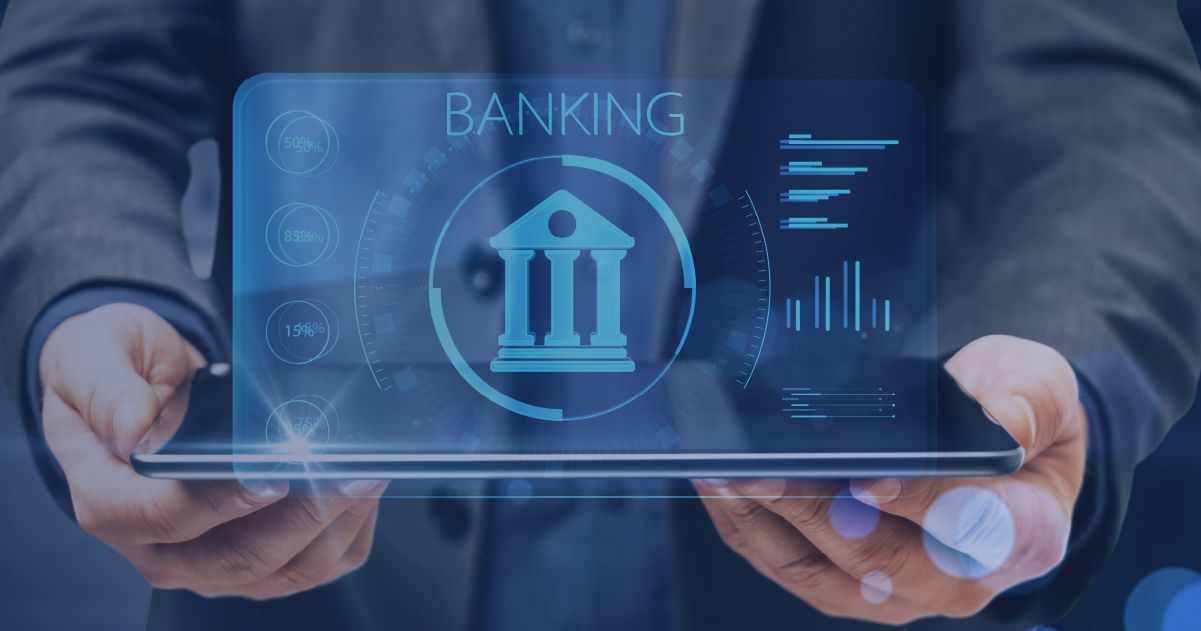Open banking solutions make the headlines worldwide, bringing huge opportunities to finance companies and clients alike. Customers can understand their day-to-day finances better, manage their money swiftly, and even get some valuable, AI-based advice on the resources they have.
Digital finance has been with us for many years now, but it’s open banking that is truly revolutionizing the market, offering clients tailored solutions and innovative financial products lightning-fast. And there’s potential for more than just separate open banking platforms.
But even the solutions available today involve sharing access to a person’s bank account information, which inevitably raises security concerns. When third-party providers and their applications have the power to access and control consumer financial accounts, many potential clients simply say „no” and decide to stay out.
In this article, we’ll discuss the present state of open banking, its background, and possible future developments. An open banking definition will be given, as well as a list of major benefits and threats related to the rapid growth of open banking initiatives.
Table of contents:
2. Open banking: innovative solutions
3. Open banking – opportunities & challenges
4. Open banking – a quick recap
Open banking in brief
Open banking can be called „a banking practice that provides third-party financial service providers open access to consumer banking, transaction, and other financial data from banks and non-bank financial institutions through the use of application programming interfaces (APIs)”.
In practice, using open banking primarily means getting access to a dashboard or platform, where the information on all the accounts used by a given person is aggregated and can be tracked in real time. Any cash flows are visible at the time when they are made.
What opened the door for open banking development in the European Union, was the Revised Payment Services Directive, also known as the PSD2 directive, passed in 2015. It was to promote the use of novice online payment services and methods on the one hand and make these payments more secure for users on the other.
As of now, open banking is heading towards a cross-industry approach and data-sharing ecosystem that goes beyond financial services. Some Artificial Intelligence solutions are already in use, helping open banking users manage the money they have better by providing some valuable actionable insights.
Open banking: innovative solutions
Open banking solutions are distinguished by versatility and flexibility, and that’s why picking up a tailor-made option is easy in their case. This convenience is one of open banking’s hallmarks and one of the reasons why the development of this discipline is so rapid.
With open banking solutions, everything related to money management, including payments, loans, accounting, investing, and budget creation, can be tackled easily. Getting AI-driven insights to make well-informed money-related decisions is possible, too.
Open banking API examples
Banks and other financial service providers use open banking software to offer or enhance a wide range of services. Some of the open banking financial API examples cover areas such as payment processing, account aggregation, customer authentication, credit scores, or tax management.
As for particular open banking API brands available in the market, we may point out Apigee, Mint, MasterCard API, Finicity, BBVA, FusionFabric.cloud, and Solarisbank. For example, the latter – Europe’s largest embedded finance platform – lets clients build their own banking products.
Open banking – opportunities & challenges
FinTech companies reach out to Banking as a Service and open banking solutions more and more often for a reason. With open banking on board, they can gain a lot and offer much more to their clients.
However, some questions about security risks remain open, too.
Open banking – advantages
One of the biggest advantages of open banking is giving customers more freedom. They can choose from a wider range of financial products and services – and they have them at their fingertips, as they access them totally remotely, in one online space.
But what are the benefits of open banking, in detail? Some of the advantages on the client side include:
- getting the possibility to choose products that are truly tailor-made for clients, serve their needs best, and are the most cost-efficient,
- gaining control over personal finances by having all pieces of information in one place, without leaving an online app,
- improving the customer experience of digital banks’ clients, e.g., by bank account aggregation and the ability to access accounts from different banks within one mobile application or dashboard,
- getting access to credits, loans, and other ways of financing faster,
- offering financial inclusion to unbanked and underbanked people worldwide.
In turn, banks, financial organizations, and FinTech companies can benefit from:
- enhancing banking products and making them more innovative,
- getting access to in-depth data analyses of clients’ financial information – and some actionable insights based upon them,
- stimulating competition between particular banks and financial institutions and driving even more innovation,
- high-quality risk profiling,
- huge possibilities for growth and gaining new customers.
Gathering consumer accounts and financial data from various sources within one platform gives endless possibilities to banks and financial institutions involved. Giving banks and other lenders the whole picture of the consumer’s credit history and financial standing in seconds is one of the most important benefits for sure.
On top of that, FinTech companies can analyze and predict customer behavior accurately and build financial profiles better, collect regular payments securely, manage multi-currency accounts, organize payment flows and bulk payments, and issue payouts instantly – to name but a few interesting open banking applications.
Concerns and threats
Having the whole financial picture in one place is very convenient for end users but it can also be very tricky, with malicious actors tempted to take over a lot of valuable data at once. Data breaches and stealing money can all be in the cards here, posing risk not only to clients but also to the financial institutions involved.
Customers are well aware of this threat and often wary of sharing their financial details with financial institutions, which can slow down the development of the open banking industry. And so can the lack of personalized contacts and relationships which used to build trust between the client and the bank.
Accessing different services from one place is a tempting vision but letting financial giants grow this way can have other bad consequences. The interoperability open banking entails is to be secure, convenient, and bring cost-effectiveness, but, contrarily, the market concentration that will probably occur can lead to consumer costs increase.
Open banking – a quick recap
Effortless money management, budget creation, and fund transfers – with a useful dashboard where you can see your funds kept not only in one bank but in all places they might be, with some useful advice based on AI and data analytics provided... Sounds good, doesn’t it?
This new open banking reality is just around the corner, with many banks around the world already using open banking APIs and aggregators. But it seems like it’s just the beginning, and other types of businesses can join soon, creating an all-encompassing cross-industry financial ecosystem together.
The number of open banking initiatives grows rapidly, but the collaborative model, with many third parties involved, raises questions about possible security risks. Financial data exchange that open banking services entail often causes safety concerns – that cover both the data and the money.
To let the idea – and the reality – of open banking grow, security, transparency, and customer data protection need to be put in the very center and consumer awareness – raised. Proper regulations have to be implemented, too, to help all the parties involved feel safe on the promised land open banking is.
Thrilled with the opportunities open banking offers for businesses and end users? Want to know more about how to make the most of it in a secure and responsible way? If you’re eager to maximize your potential with open banking, contact Codete now.



